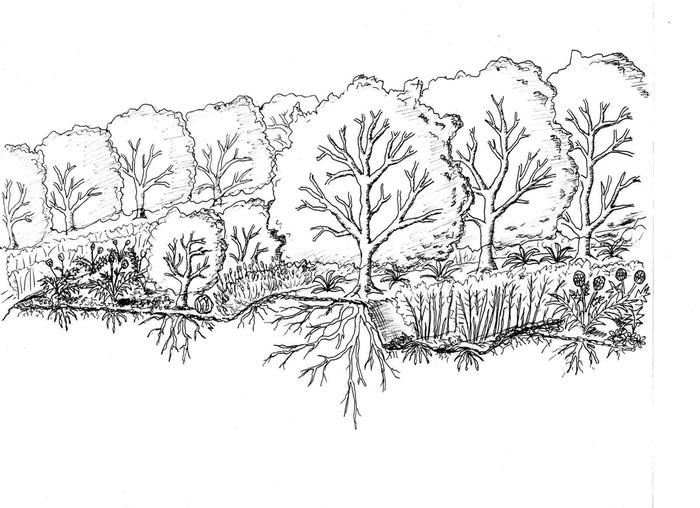




























davidpitman wrote:
A miss conception with permaculture is that it requires more time consuming work than convention agriculture. However, this is not so. Generally with a good system set up, a permaculture farmer generally only has to harvest.








Permaculture will save civilization: http://www.human20project.com




permacaper wrote:
The first thing I'd consider would be a mixed-species grazing operation. With some cattle, sheep, chickens, and possibly pigs, you can immediately start improving your land and soil food web (look into Holistic Planned Grazing or some of Joel Salatin's stuff if you haven't already).








"To oppose something is to maintain it" -- Ursula LeGuin









"To oppose something is to maintain it" -- Ursula LeGuin












Ian Okanogan wrote:
My question is whether it is possible to combine a monocrop agricultural system with permaculture system.
Life that has a meaning wouldn't ask for its meaning. - Theodor W. Adorno








Ian Okanogan wrote:
..., so please feel free to offer any advise that could help me achieve my ultimate goal of a simple, productive acreage...






























homesteadpaul




Brenda
Bloom where you are planted.
http://restfultrailsfoodforestgarden.blogspot.com/








1. my projects






























Ian Okanogan wrote:
Can anyone give a little more advice on a tree fruit forest? I liked that suggestion from some people and have been reading up a bit. Are there any good resources people can point me to? Also, can people comment on what groupings work well with tree fruits, especially cherry/peach/apple. I'm new to the 7 layer approach od a whole food forest, so any direction is appreciated. Thanks.





Ian Okanogan wrote:
Can anyone give a little more advice on a tree fruit forest? I liked that suggestion from some people and have been reading up a bit. Are there any good resources people can point me to? Also, can people comment on what groupings work well with tree fruits, especially cherry/peach/apple. I'm new to the 7 layer approach od a whole food forest, so any direction is appreciated. Thanks.
"To oppose something is to maintain it" -- Ursula LeGuin





Paul Cereghino- Ecosystem Guild
Maritime Temperate Coniferous Rainforest - Mild Wet Winter, Dry Summer





